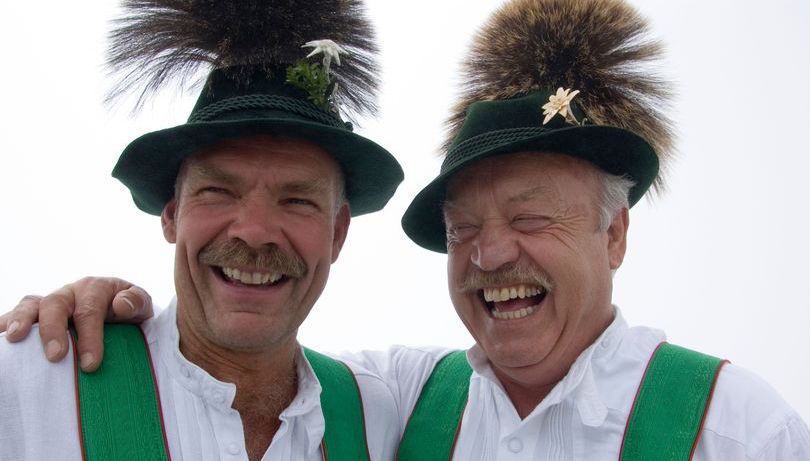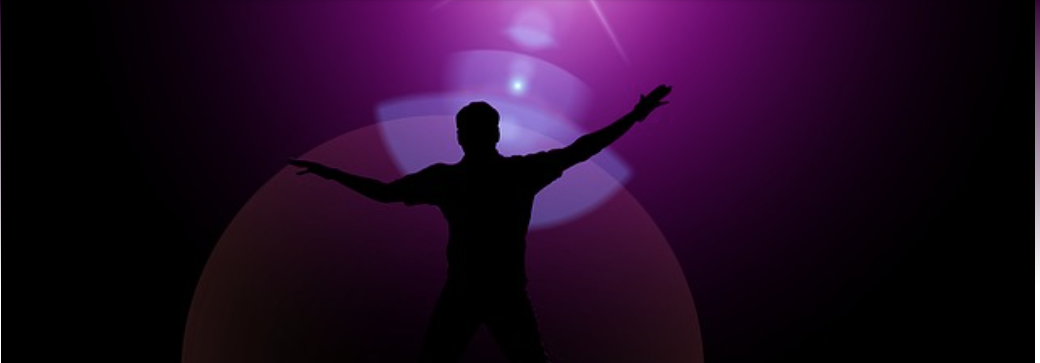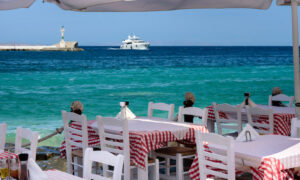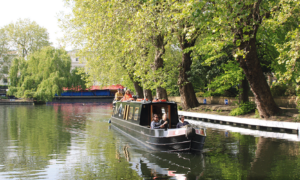“You’re coming to the lake, dude” is a sentence I never thought I’d hear after doing a stand-up comedy show, but there I was outside of Ma’s Comedy Club in Mitte, Berlin, being invited along for a late night party with a whole bunch of new friends. A few hours later, I was floating in Weißer See near Prenzlauer Berg reflecting on my set as I bathed in the moonlight of a warm summer night.
It has been exactly one year, two months, three weeks and two days since I had last told jokes while not sitting in a room full of people, and it had gone pretty well.
I was too terrified to do any new material, so I stuck to a tight 10 minutes of jokes that I had worked out hundreds of times on stage in New York City.
I was pretty nervous, but the hosts were immensely friendly and hospitable. The guy who brought me on the show, Daniel, told me “Yeah man, I listened to your tape and I didn’t really like, listen to any of your jokes, but your rhythm and energy was good, so I was like, ‘Sure, he can do the show.’ ”
This was “The Real Show,” a weekly show with a rotating roster of Berlin comedians. I was so happy to be back doing comedy that I didn’t notice the immediate difference between this show and many shows I was used to doing back home: no one was forced to buy tickets, or even drinks.

Do Germans even like to laugh?
In the middle of another comedian’s set, four mysterious men in matching vests, shirts and hats entered the club. My first thought was that they were perhaps out for a bachelor party, the theme of which dictated their attire, but speaking to them after the show revealed that these were in fact journeymen, or Wandergesellen.
These four dudes (let’s call them Jan, Helmut, Klaus and Lukas) had all finished three-year apprenticeships as carpenters, and were now taking part in an age-old tradition of wandering around Germany and basically just checking stuff out. In the Middle Ages, this was supposed to expose the artisan to other styles of Europe as a kind of finishing event for their training. These fellas seemed like they were just out for a bit of fun and their wanderings led them to a comedy club.
Every comedian now had to mention these mysterious visitors. During my set, I riffed that I was saying all night that this room needed more vests. A few people laughed, but their stone faces did not. This was not necessarily because they didn’t think this was funny (at least this was the vibe I got) it seemed like maybe they were just into listening and not necessarily laughing.
Which brings us to the big, giant elephant in the room stereotype about Germans and German audiences: they don’t like to laugh.
I don’t think this is fair. I believe everyone likes to laugh, the chemical release that happens is undeniably pleasurable, even for the most uptight of human beings. In my three months of doing comedy regularly, I’ve come to believe that German audiences simply have a uniquely different relationship to humor and laughter that is truly their own.
“Audiences here really listen to your jokes sometimes, man, they’re really thinking about what you’re saying, taking it apart, contemplating it. Sometimes you have to remind yourself that just because they’re not laughing doesn’t mean they’re not having a good time,” a fellow comic told me before my set at The Wall Comedy Club in Friedrichshain.
Coming from the cut-throat world of hard and fast NYC comedy, where bookers often count your laughs-per-minute (LPMs) in your demo tape, and where Lenny Bruce’s philosophy that “the role of the comedian is to make the audience laugh, at minimum once every 15 seconds,”I was a bit doubtful.
But after watching a number of shows and sets and observing German reactions to jokes, I found a lot of truth in this.
I’ve seen many Germans smile largely, chuckle, chortle or twitch in silent containment of laughter, but i have yet to see a German explode in the throes of humor.
The knee-slapping, belly re-arranging, chest rattling guffaws are mostly absent from audiences that grew up here and many comedians often joke about this during their sets.
But while one can sometimes find truth in a stereotype, one also becomes aware of just how inconsistent a reductive generalization of a whole group of human beings can be. There is one group of Germans that certainly love to laugh, and laugh hard: German comedians.
I was backstage at The Wall after doing a really fun 15-minute set when I met a German comedian (who was hosting the next show) who was having a particularly silly issue with his back; he had some muscular pain, had previously applied too much of a heat inducing healing ointment and was now reeling from an overly hot burning sensation.
He ran into the room, ripped his shirt off and positioned his back in front of the air conditioning unit, groaning in discomfort and relief. “I’m so sorry for this, guys,” he squealed through pain and laughter. Everyone in the room (all comedians from Australia, USA, Germany and elsewhere) erupted in laughter. He made fun of himself, we made fun of him, and everyone laughed their faces off at this bizarre and oddly endearing scene. I had never seen someone in so much pain and silliness at the same time. This idea that Germans are unable to laugh at themselves and each other was proven to be simply untrue.
A kinder, gentler scene for comedians
I continued to hang out with these incredibly friendly and funny people, and one of the hosts invited me to write a five-minute set for his show . . . Auf Deutsch! My German currently being only A2, I told him “Yes, absolutely,” but that it might take me a while to complete this very interesting assignment. This was one of many incredibly friendly, warm and welcoming moments I’ve had with all the fellow comedians I’ve met here and the venues I’ve played in.
The best show I’ve done so far was at Laughing Spree, a hostel boat turned comedy club right on the river Spree. The place was packed, beyond sold out with people watching from outside. I was already incredibly nervous and watching every comedian before me kill made me want to throw up. Shortly before I went on, a fellow comedian who I had met doing a show the previous week at Cosmic Comedy Club, could see that I was nervous and said, “Hey man, they’re all warmed up and ready to laugh at you man, you got this they’re ready for you to crush it!” Being that I was (and am still) pretty new on the scene, his kindness caught me completely off guard. “What a supportive and loving scene,” I thought. Here was a show exploding with people excited to see comedy, who simply pay a suggested donation to get in and drink heartily but aren’t forced to buy expensive tickets or deal with a drink minimum. How fun, how healthy!
This is quite different from how it goes in clubs in NYC.
Unfortunately, comedy in the Big Apple has become infected with a toxic “pay-to-play” culture. All comedians know about it, some speak out against it and try to change it, but most of us do our best to play ball with a hyper capitalist structure that takes advantage of artists and asks them to contribute money despite the fact that these comedians are most often financially challenged.
While there are several open mics every day in NYC, many of them are not free. Just to get 4.5-minutes of stage time, one often has to pay a fee, essentially a ticket of sometimes upwards of five dollars. Some open mics require that you buy a drink as well. Many open mics are free, but with stage times of sometimes only three minutes and no real audience aside from other comedians who are often not paying attention, doing these often feels no more productive than practicing at home in front of the mirror.
After one gets a good enough set together, comedy clubs in NYC are always on the hunt to rope artists into doing their “bringer shows” which is the next tier up on the pay to play joke teller pyramid scheme. In exchange for bringing usually a minimum of four ticket paying guests (at one club an insane 15,) each of who are hit with an enforced “two drink minimum” in addition to a ticket price as high as 25 dollars (sometimes more), a comic will get 5-10 minutes on stage and a video. Since most comedians in NYC are not rich, nor do they have rich friends, one burns through one’s contacts pretty quickly trying to get people to show up to the gig.
I found myself asking people I barely knew at bars I worked at to come pay a minimum of 50 dollars (A gin and tonic at these places is often upwards of 10 dollars) to come see me joke about gluten. It’s hard to pretend you are participating in a fun and lively scene when the “scene” is a show packed with comedians who have desperately begged anyone they knew to come see them and pay too much money to do so. It becomes obvious that these shows are not about serving the audience comedy, they are about serving the venue rent money, which is pretty much what all life boils down to (sadly) in NYC: dealing with expensive real estate.
One of my first shows in Berlin was at Cosmic Comedy Club in Mitte. I got 10 minutes of stage time, a packed real audience, a professionally shot video of my whole set (awesome, didn’t have a demo since before the pandemic hit) and great high-resolution photos. Nobody asked me to market, promote or sell tickets to their show. I just had to do my job as an artist: make people laugh.
Pitching my film at 4:30 in the morning while floating in a lake
When lockdown hit in NYC, not doing comedy sucked. But it gave me time to reflect on what parts of this scene were truly toxic. There are many, many wonderful independently produced shows by seriously funny people that happen there, but there is also a big culture of artists who get tricked into paying to practice their art. After the terror of the pandemic and the tentative first steps of re-opening, it’s heartening to see so many new indy comedy shows popping up all over town, but the pay-to-play culture is still strong and hungry.
In Berlin, I have found the exact opposite situation to be true. All the artists I’ve met have heard about how comics often have to pay to do comedy in New York, and they balk at such an idea. There is a strong respect and support of artists in comedy here and many are working to create opportunities for stand ups to get paid. The art form is exactly the same but the working conditions are so much more nurturing. With a growing demand for comedy in Berlin, the city is indeed experiencing a boom in the laughter trade and there are many, many opportunities.
That night in Prenzlauer Berg, I swam out to the middle of Weißer See with my new comedy pals and we sat on a floating platform where a bunch of ducks had gathered in a kind of late-night silent congress. We chatted about usual getting-to-know-you stuff. I mentioned that I’m a filmmaker and then they asked me what I was working on and I found myself doing something both typically show business and typically Berlin: I pitched my short film while floating in the middle of a lake, at 4:30 in the morning. I was so glad I decided to go to Weißer See that night.
Getting back into comedy post-lockdown in Berlin has been like taking a much needed refreshing swim and I don’t think I’ll be leaving the lake anytime soon.

About the author:
Chris Loar is a comedian and artist living in Berlin. He was born in Torrance, California and called Brooklyn, New York home for 16 years before moving to Germany in 2020. A multi-hyphenate creator, Chris is also a passionate movie maker, Yoga teacher and cocktail bartender.
See more of Chris’s Berlin work diary here.
Read more on Dispatches’ Berlin archive here.














